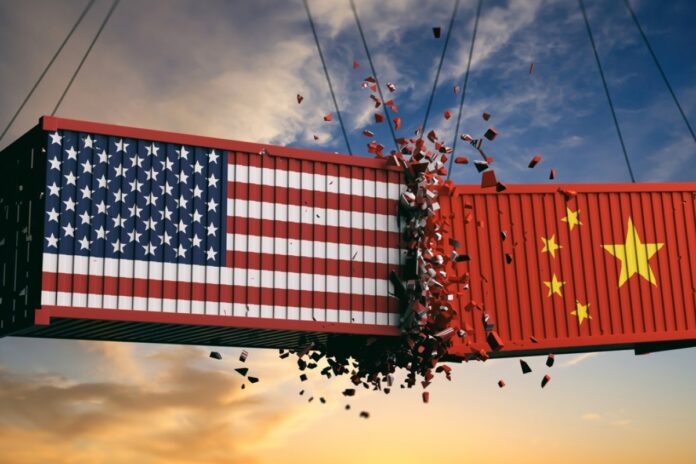- ‘Higher tariff on Chinese products makes Pakistani exports more competitive in the US market’
- ‘Chinese manufacturers can ward off punitive tariffs on their exports to US by relocating their labour-intensive industries to Pakistan’
BEIJING: Economic experts have hinted at emerging trade and business opportunities for Pakistan, following the US-China trade war.
According to Nomura Securities’ strategists, Pakistan could potentially be the third most fortunate beneficiary in this feud.
Recently, Adviser to Prime Minister Abdul Razzak Dawood had also stated, “The trade war between China and the United States is getting bigger and bigger by the day… and the demand for goods is not declining (in the US market). Pakistan needs to explore ways so that it can benefit from this war.”
These controversial claims; however, have certain assumptions attached to them.
There are three possible ways that Pakistan can turn one of the greatest economic feuds into its favour and establish itself in the international market as a key player in world economics.
First of all, the high tariff on Chinese products in the US makes Pakistani exports more competitive in the US market.
It had always been very difficult to compete with Chinese products in any international market because of their low production costs due to cheap labour and economies of scale of Chinese firms.
However, the high tariffs have made these “cheap” Chinese products more expensive for the US buyers. Higher prices have led to a decrease in demand. This has left a gap that can be potentially filled by alternative sellers in the US market such as Pakistan.
Pakistan Business Council CEO Ehsan Malik said, “The China-US trade war has put Pakistan in an advantageous position and we have become more competitive than China in some areas like textiles. It offers an opportunity for Pakistan to boost its exports to the United States as well as revive the closed manufacturing capacity (mostly in Punjab).”
Engineering, textile, surgical tools, sportswear, plastics, footwear, fishery, packaging, pharma, kitchenware, furniture and jewellery are some of the types of Chinese products that have been subjected to the high US tariffs.
Out of these many Chinese products, Pakistan has the capacity to produce a substantial amount of products as exports for the US market. Of course, the production of items from each of these categories will depend on the availability of resources to Pakistani industries. For example, Pakistan has a flourishing industry for sportswear products.
The tariff war between China and the US could lead to potential industrial growth and inflow of foreign investment into Pakistan.
The PBC CEO said that the Chinese manufacturers can ward off punitive tariffs on their exports to the United States by relocating their labour-intensive industries to Pakistan.
The US has put tariffs on Chinese products, i.e. products produced in China. Moving industries to Pakistan will be a trend in this case because of the recent economic goodwill established by CPEC. Such inflow of foreign investment would boost the economic growth of Pakistan as the national income of the country will increase.
These huge sums of foreign investment could lead to the establishment of Special Economic Zones in Pakistan. Establishment of these new industries will be closely linked to foreign investments in improving the infrastructure of the country to make long term production cost less.
The inflow of Chinese investment will only be the start of a very fruitful ripple effect, as more foreign investors will be attracted to set up industries in Pakistan. With Pakistan’s geographical location, it could become a hot spot for future investments from all over the globe.
The US-China trade war has given Pakistan a golden opportunity that if used wisely could be an economic leap in Pakistan’s history.
Pakistan could potentially end up with an increased amount of exports to the US, become a hot spot for international investments (especially from Chinese investors). However, certain economic and political limitations might put a dent in how well this opportunity can be explored.
Thus, what the Pakistani government should do is closely analyze all developments in the US-China trade war and make numerous alternative plans of action, keeping in mind the geographic, political and economic feasibility. Then the best course of action can be taken.
What Pakistan should not do is make rash decisions by overestimating their own potential and underestimating their limitations. Similarly, Pakistan should also not underestimate its potential and overestimate its limitations. It should tread carefully over one of the biggest economic feuds in history and try to benefit from it in the best possible way.




